Conversations: Brian Bowen Smith on Life Lessons and Drivebys
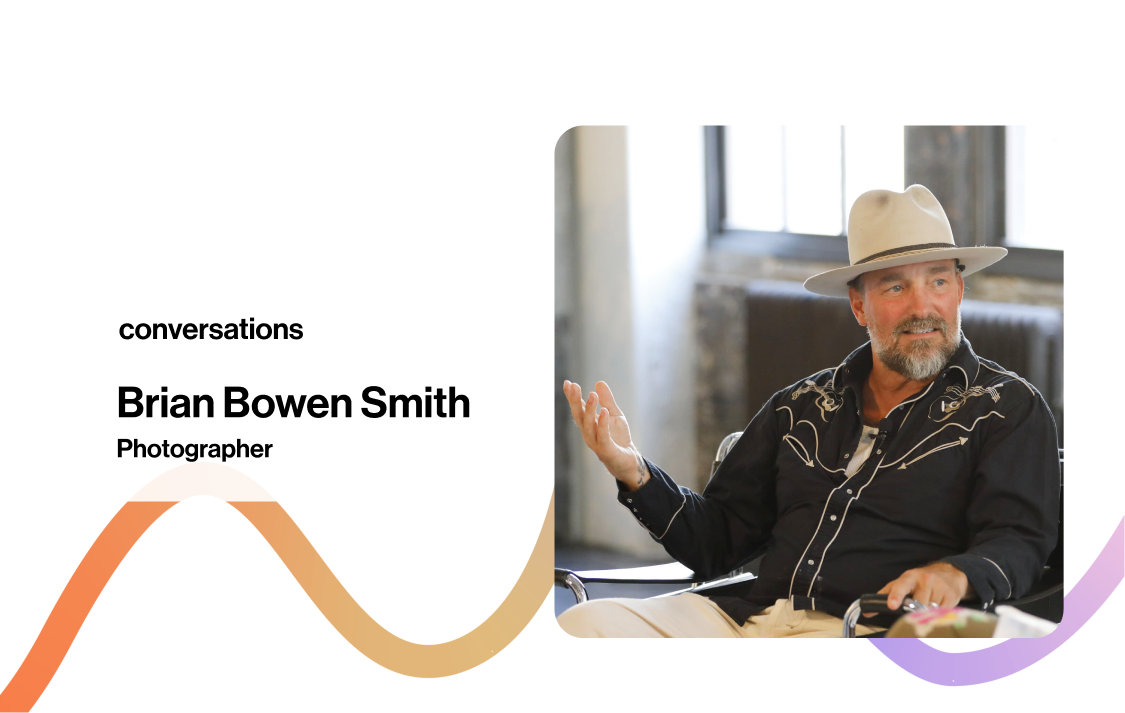
Brian Bowen Smith is an incredible photographer, rivaled closely by his ability to tell a great story. He became a photographer through a less traditional route and is well known today for his high-profile editorial and commercial work.
Brian recently rereleased a book of work captured during the 2020 pandemic called Drivebys. In an evening hosted in our Tribeca gallery, Brian talked with Globaledit’s Katie McNeill about the story behind Drivebys, lessons from his mentor Herb Ritts, and advice to aspiring creatives.
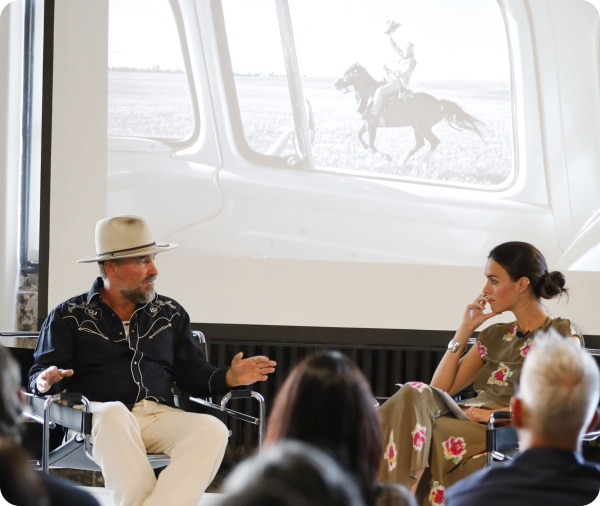
I think an essential starting point for any conversation about your work is your personal story, because it’s genuinely remarkable—like something out of a Charles Dickens novel—and really sets the stage for everything else we’ll cover from here on out.
Brian: Being creative has always been part of my life, even in just surviving. I grew up in a town where people didn’t really get out, so when you got attention, it was like a drug. I started my journey doing gymnastics; I had to stay late after school because I was getting in trouble hanging out with the wrong crowd, and the gym teacher was like, “If you’re gonna be here, why don’t you do something?” I ended up being really good at gymnastics and it opened up a million doors for me, and made me realize that by being good at something, good things come.
Gymnastics got me a scholarship which led me to New York City. After getting injured, I quit gymnastics and pursued acting, became a pro skater—I lived a lot of lives. Acting took me to California, where I got cast in a Gap campaign and shot with Herb Ritts.
In LA, I worked with Madonna, and her manager Guy Oseary gave me some really good advice. He said, “I need to know what you are. Are you a photographer? Are you a pro skater? Do you want to act? I don’t know what to do with you, because I don’t know who you are.” And that changed my life. I decided that day to quit everything and only do photography.
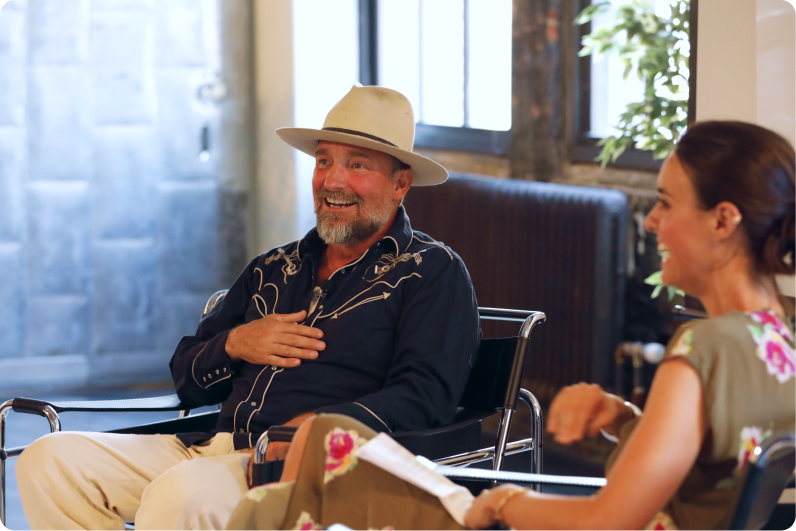
Why photography?
The only A I’ve ever gotten in school was in photography. I was immediately obsessed with the darkroom and having a camera. It was the only thing that I went to bed thinking about and woke up thinking about. I was basically self-taught, and I eventually became Herb’s assistant.
Initially he only allowed me to watch his shoots. I’d always be an hour early, parking cars, lugging around wires—and each time I’d learn about something new, a piece of equipment or whatever, until finally they were like, “Dude, if you’re gonna be here, you might as well start working.”
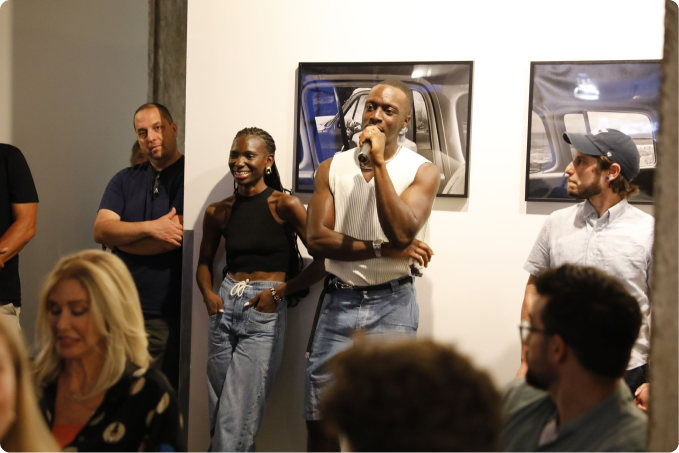
Wasn’t Herb self-taught as well? Was that important to him?
Yes, which is why he was so supportive of what I was doing. But as far as what I learned from Herb, 90% of it had nothing to do with photography. It was watching how he dealt with clients and situations, how he set things up, and how simple he made everything.
Herb used a lot of natural light; we would set up 18Ks on the beach, which was ridiculously hard, because he wanted to recreate sunlight. He knew the exact picture he wanted, and would send his assistants the day before to find out where the sun would be at a specific time. Now, he couldn’t control the weather, but he could recreate it. He did his homework and was very specific.
How did you reconnect with Herb after acting?
Sandy Gallin, who was my manager when I was an actor, was good friends with Herb. Sandy was a legend in Hollywood, and he backed me when I decided to move into photography.
Sandy told me something I’ll never forget. When I told him I wanted to quit acting and become a famous photographer, he said, “You don’t want to be a famous photographer, you want to be an important photographer. Those are the pictures that change people’s lives.” That has stuck with me to this day.
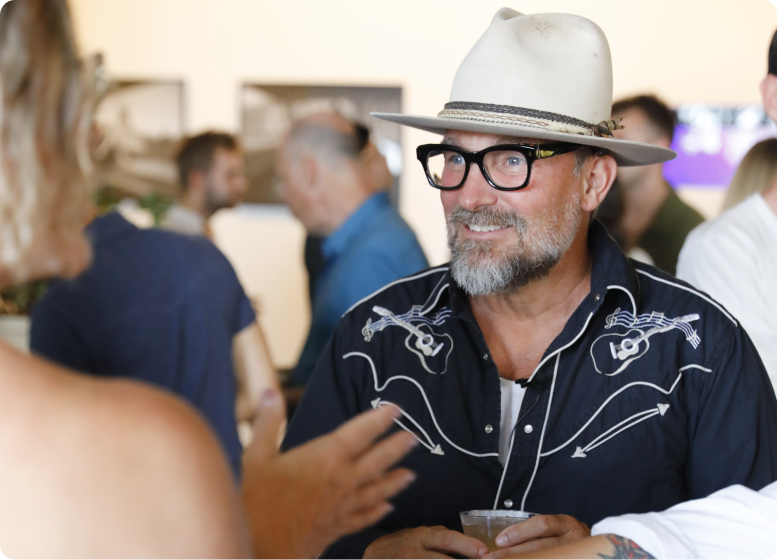
That’s a great segue into Drivebys. Can you take us back to the moment this all started?
Back in 2020 in lockdown, I’m like, “I’ve gotta keep shooting.” With photographers, when you really love it, there’s no reason to stop—and you can’t. So my agent, Rick Callahan, encouraged me to do the personal work I hadn’t had the time to do before the pandemic.
I started by planning a shoot with a girl down the street and taking pictures through the window of my 1958 Ford F100, Pearl. It was beautiful to capture these magical moments with normal people; I got that feeling of turning nothing into something, and being on a shoot again.
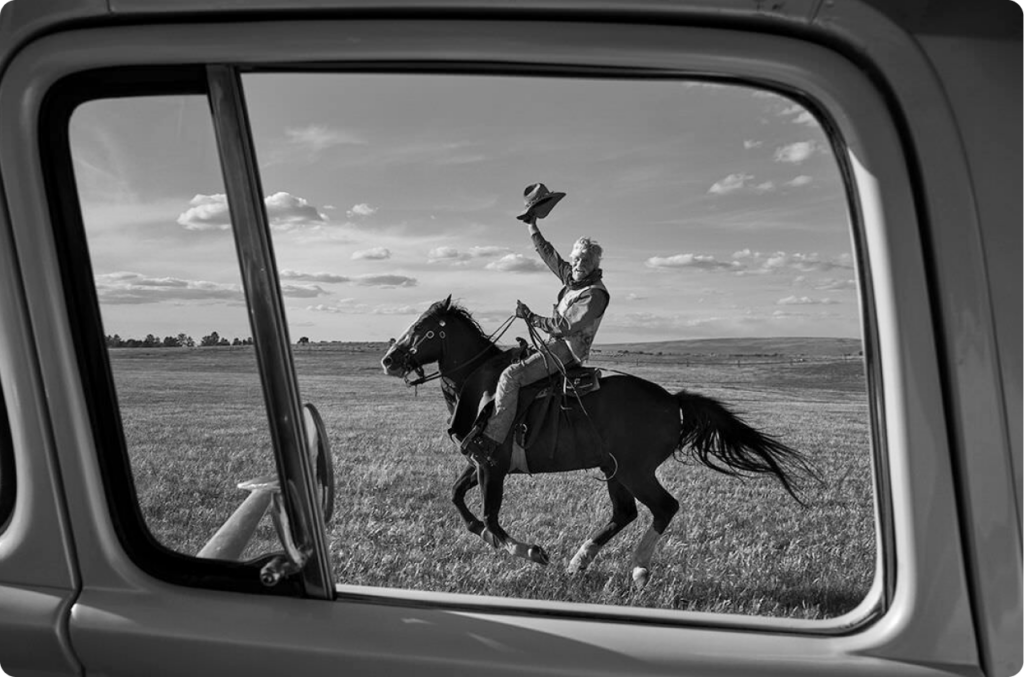
I Instagrammed the first few pictures and started to get calls from people in places like Kentucky, so I decided to go on the road. I left on May 2nd and was gone for 5 weeks. I didn’t even have a backup camera. I felt this urgency because I didn’t know when COVID would end, and I loved the freedom of having time to concentrate on my own work.
We traveled across the country capturing people who reached out on Instagram. Each photo in the book has its own incredible story and was a collaboration between me and the subject. As a photographer, my strength is taking something and making it better. It’s like in a relationship, when you know how to make someone feel like a million bucks. When you have that together, it creates the perfect photograph.
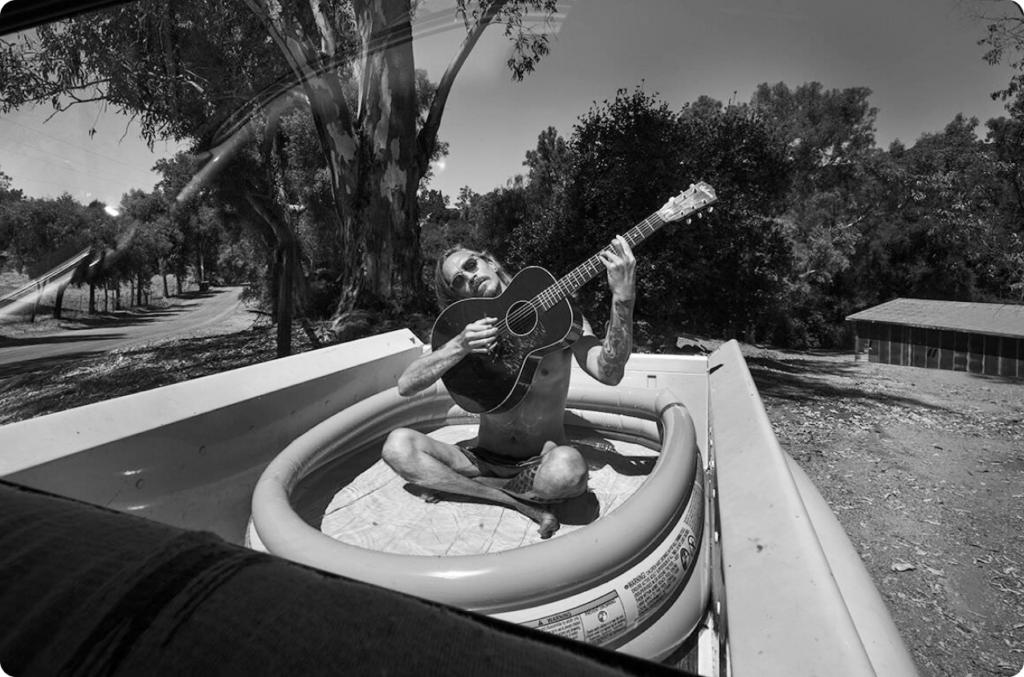
How do you approach that?
You wish for it, first of all. But my job is to take something or someone, and figure out how to get the best out of it. Whether it’s an average Joe or the most beautiful girl in the world, how do you get something different to impress them? That’s the hardest thing in the world.
Another thing Herb would tell me was, “Just take the picture. Sometimes my pictures turn out blurry, and everyone thinks that I did it on purpose, but it’s actually because I wasn’t ready or didn’t realize the shutter was at a 30th of a second. But it doesn’t make the picture any less of a picture, and if I hadn’t taken the picture, that picture is gone.”
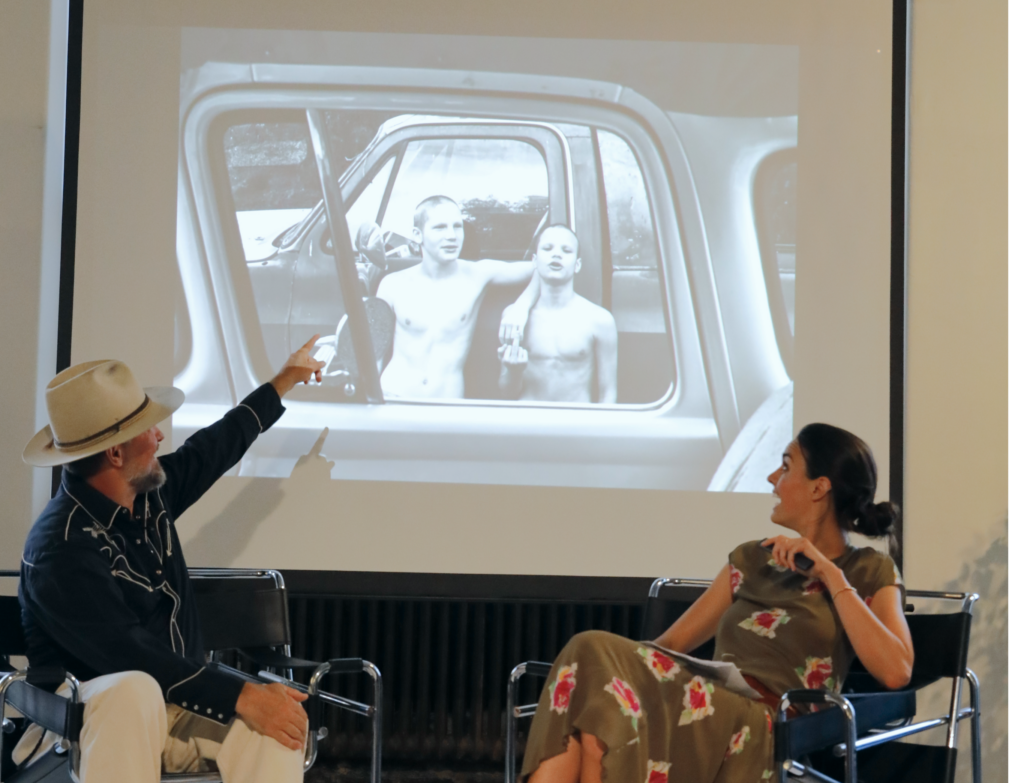
What did you learn creating this book?
I learned that sometimes photographers forget that they’re invading people’s privacy; you’re taking pictures of people and repurposing it for your own use—those are actual people’s lives. Maybe some pictures aren’t meant to be taken.
Another message I would give to anyone interested in the arts, at any age, is that if there’s something you want to do, just do it. The great thing about photography is that it doesn’t know how old you are. It doesn’t care. All it cares about is “Is it good?”
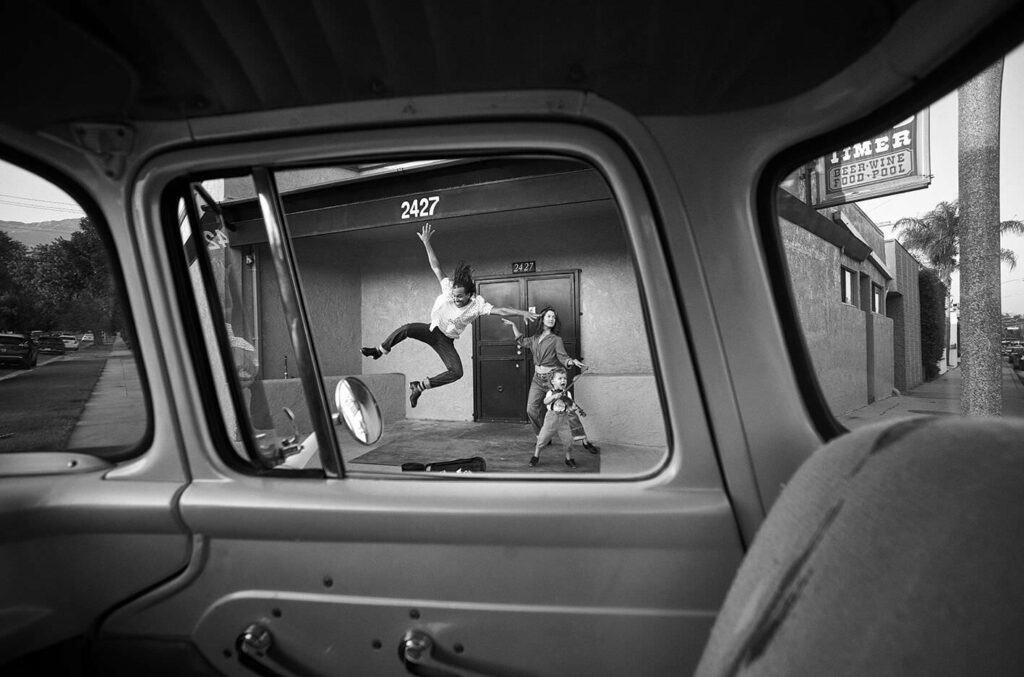
That sounded like a great ending! Any final thoughts?
I will say this: anytime people are interested in what you do, it’s completely inspiring. It relights my fire to keep doing what I’m doing. I’m so grateful to look out and see people actually interested, and not looking at their watch, and hopefully I can inspire other people who have a dream to just go after it. This book was an accident, and it ended up being one of the best and most personal things I’ve ever done.
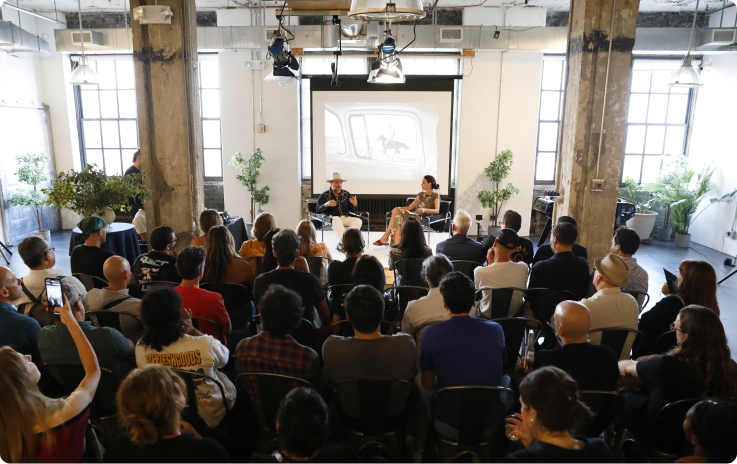
You can order Drivebys and see more images from the book here.
